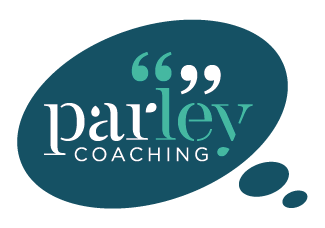
Time is the coin of your life.
It is the only coin you have, and only you can determine how it will be spent. Be careful lest you let other people spend it for you.
– Carl Sandburg
It is now almost a year since since my last recording of time.
A few weeks ago, on a Monday morning, prime time, I looked outside at the snow that had fallen during the night. A change. To be celebrated in Lockdown. I went for a walk. Almost home, for the first time on the walk, I reflected on my choice. To walk aimlessly rather than do the things on my To Do List. And I thought about me as a lawyer. A lawyer in detox. I had left my phone behind. The billable hour forgotten. And I felt no guilt. It had taken a year.
When I told my wife about this topic, she said “I still dream about billable time.” She stopped being a lawyer 22 years ago.
So what are my reflections on the culture of the billable hour? What have I learnt from experience, transition and coaching? Can lawyers build a more resonant, self-oriented relationship with time that will benefit them and those around them? (Even as I write this, I worry I may have bitten off more than I can chew as I genuinely believe this is such an important topic).
Why is this such an important topic? It all sounds a little “woo”, as one of my lawyer clients would say.
Because the way we use our time determines how fulfilled we will feel (this is the essence of coaching).
Because many lawyers are reporting mental health challenges, and my coaching has made me reflect on what I had for a long time sensed – that this is connected to the culture of time in the legal industry.
I coached a former lawyer who is now a CEO. The client reported anxieties when doing none work-related activities but dismissed this as “all part of the legal training”. When I later asked the client about their step up to CEO, and what their team would say about them, the client thought for some time before saying, “ No – I am sure the team would say… that I worked as hard as anyone”.
So not about the quality of what you have done?
Is this inevitable? Is it right? That lawyers start to measure themselves on a quantitive rather than qualitative basis? That the culture of time overrides a culture of growth and self-direction (choosing, creating, exploring). It is clear that the scars it leaves are significant. Are there solutions?
Don’t Fix What Isn’t Broken?
Time recording has driven legal industry growth. It has also been the industry’s principal measure of contract / client profitability, and rightly so, as people are the engine of a law firm’s value. There may be alternatives. Articles abound of the demise of the billable hour but I do not intend to add further to this debate. Instead I want to discuss the people side and ask whether the use of time inevitably leads to the same place. I ask this question in the context of covid, it’s blurring of lines still further for the lawyer work and home life, and a predicted collective need to reset once we can.
Where have current cultures taken us?
Reflect on this mischievous straw man.
Firms advocate core values that do not mention time. But time is talked about more than these values.
Law firms measure the performance of partners and associates with more than half an eye on billable time.
Lawyers are labelled “lazy” for having fewer billable hours. Leaders celebrate the workaholics – a not so virtuous circle – and behaviours inconsistent with their stated values are often overlooked. Bonuses are paid to associates on the basis of hours. Lawyers discuss their herculean hours more easily than they do the positive things they have done for their team or their clients or the community.
Partners ask to be more in charge of their business. They get a “dashboard” of metrics. They are always at the wheel. Billable time is often seen as more important than bills generated, never mind wider contributions. Values are rarely discussed.
Partners and associates start to believe that they are valued primarily for the billable hours they record. Leaders choose not to contradict this.
Partners stop spending time investing in themselves and the business. I have written before about the Covey flag waving for what he called Quadrant Two Time – the time spent on matters that are important but not urgent. Like strategy. Like relationship building. Like team building. Like learning.
Instead, smart lawyers spend as little time as possible doing non-client work. They become seen as “a real client lawyer”. These lawyers often move into silos or cliques and rarely reflect on what is best for the firm.
The key is in not spending time, but in investing it.
– Stephen R. Covey
Associates who have entered the profession to be great lawyers are rewired – and start to see days in terms of billable hours. Partners crave the time when they can stop recording time but find that when they do stop, they feel guilty and lost.
Lawyers lose their “growth mindset” – billable hours fill every gap.
The profession reports increasing disillusionment and mental health issues, but doesn’t change.
What can we do?
I accept that my straw man will not reflect everybody’s view of law firm life but I challenge anybody not to recognise a lot of what I say. My own challenge would be this. The straw man implies an inevitable slide into a less fulfilled state. It doesn’t need to.
My experience as a lawyer and leader and as a coach to lawyers has made me reflect on what next. I have kept this as short and simple as possible:
Law Firms:
Communicate more consistently about values, growth, team work, opportunity, the future and quality. Engage with the firm as a whole post covid on what has changed and what an ambitious, collective purpose could be. Reset the Why in law firm purpose.
Elect leaders with the Why front of mind.
Live the new Why and build a culture of lawyer development away from the billable hour. Emphasise that while every lawyer in the team needs to work hard (there is nothing wrong with commitment and exceptional client service being part of the Why), it is the partners’ role (not the associates’) to ensure that there is consistency in effort. Reframe appraisals away from time (and what has been and gone) and more to the future, the possibilities, and what it takes to be that great lawyer the appraisee entered the profession to be. Use each appraisal to reflect on the individual’s wider contribution.
Lawyers:
Demand the above. The Why in law firms can revolve around supporting potentially great lawyers to become great lawyers. Is it too much to ask for the law firm to be reset to make that more likely? Will that not stimulate growth and enhanced client service?
On an individual basis, even if none of the above is possible, get a coach, self-coach, build awareness and confidence. To be able to judge yourself only on what you are (and not by the number of hours you have amounted to). Be clear with yourself about your own metrics. Align these as much as possible with your firm. And then practice what you preach with everybody you work with.
Take back your time and invest it wisely. It is the coin of your life.
I thought hard about not writing this article, about the profession that has given me so much since those early Snow Hill days. Not least because my coaching business is, in part, pointed toward the legal profession. Isn’t that the point? I loved being a lawyer. I was honoured to be a partner of two amazing law firms. I very much want their success to continue.
But has the profession lost sight of quality over quantity? Is this necessary? Is there a better way for lawyers to grow, and help their businesses to grow? It is time to be honest and ambitious about this. Many other businesses are feeling the groundswell of Why. Post covid may represent the best opportunity in decades.
